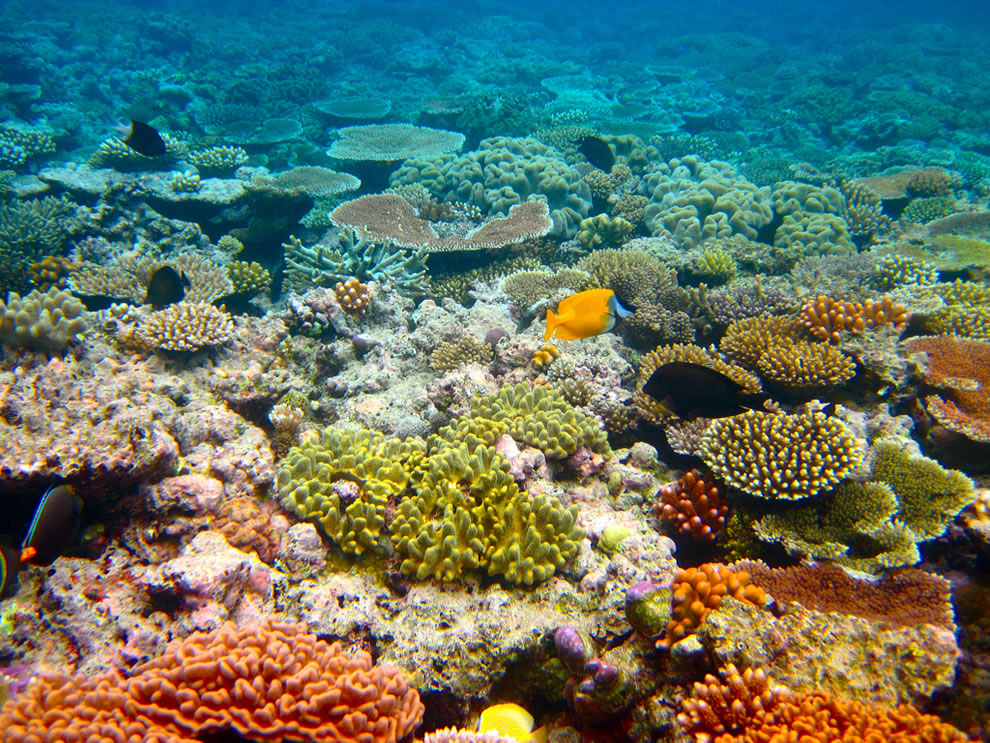Further Stressing Corals – “Oil Slicks”

I blogged recently about how ocean acidification is killing coral reefs. Now comes news that, in what previously was thought to be the harmless use of high SPF sun tan lotion for skin protection against too much sun, is an ingredient that kills corals.
Several years ago, there was an unplanned rendez-vous of researchers and a vendor at the Trunk Bay beach on St. John’s in the U. S. Virgin Islands. The vendor predicted that the researchers would see long oil slicks behind vacationers snorkeling along the 225-yard-long Underwater Trail of reefs there. He knew that SPF sun tan lotion comes off while swimming or snorkeling, fouling the crystal clear water. This sparked a study conducted both at Trunk Bay and Hawaii.
The offending ingredient, oxybenzone, was shown in the study to work in 3 different ways to break down the coral. (Here’s the abstract of it.)
This chemical, sometimes known by the commercial name Benzophenone-3, long in the cross-hairs of the Environmental Working Group (EWG) for avoidance, blocks ultraviolet radiation when applied to human skin to retard sun damage. But even in a tiny amount also damages the DNA in both mature and larval coral organisms. It’s known as a genotoxicant.
And, it’s not just those in the water with sunscreen applied. Consider athletes exercising outdoors, or slathered sun-loving families at playgrounds and parks? Or cruise ships discharging gray- or wastewater overboard, including from swimming pools and showers where sunscreen is washed off.
With municipal sewer outfalls like the one in Ocean City, MD, which dumps stormwater directly into the ocean at the beach, the hosed or washed off sunscreen joins other harmful ingredients in what a recent Washington Post article about the issue called a “cocktail of chemicals.”
When looked at as to the proximity of popular tourism areas to ocean reefs, the study estimates that at least 10% of reefs can be impacted. In the Caribbean, at least 80% of coral reefs have already been lost claims Craig Downs, a report researcher at the Haereticus Environmental Laboratory.
The Post article goes on to say that more than 3,500 sunscreen products contain oxybenzone. So, at this EWG webpage you’ll find out what sunscreen products are eco-friendly and not. Consider updating your sunscreen supply accordingly before your next outing.
- Adverse effects on coral start with oxybenzone concentrations as low as 62 parts/trillion.
- The world is in the midst of a 3rd global bleaching event for coral, warns NOAA.

P. S. Recall aerosols proved to deplete the earth’s ozone layer? Since the Montreal Protocol was adopted by most nations to prohibit those certain aerosol propellants, the ozone layer has healed up quite nicely in most corners of the atmosphere.

